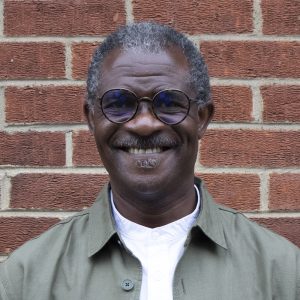An introduction to Theology and Counselling With the programme leader
Theology and Counselling student testimony
The REMA model and Counselling service
Who is this programme for?
This programme is for people interested in training to practice as clinicians in different settings such as the NHS, schools, pastoral ministry or missions. The programme is also for people interested in becoming professional counsellors and needing a well-laid foundation in the Bible and theology. The pathways after training are many, based on your ambitions and dreams.
Our programmes are cutting edge as a result of new thinking. You will be equipped to learn how counselling theory and skills align with a theological lens on human functioning.
Programme Overview
At the heart of our BA Theology and Counselling programme, you will get to know a relational integrative model of counselling which roots counselling in a Christian understanding of people’s fundamental needs for Relationality, Embodiment, Meaning and Agency. This is called the REMA approach to counselling and has been developed especially by London School of Theology.
We teach an integrative approach to therapy with a psychodynamic core. This means that the primary orientation is psychodynamic in the sense that we look to deep-seated reasons and root causes. We integrate aspects of other counselling modalities to help us to be attuned to the particular situations of individual clients rather than be equipped to move solely in a particular theory of the inner world.
The REMA Approach to therapy is also integrative in that we are attuned to the centuries of reflection in the faith-based traditions of Christian theology and pastoral psychology which have most definitely not out-lived their usefulness.
Every approach to therapy is rooted in pre-suppositions about psychological functioning and a way of being human. The value of human beings underpins the ethical framework but is also a psycho-social dynamic driver. We are hard wired to pursue this in our lives: high value is a powerful motivation. Where this is not forthcoming in our social or inter-personal world, something happens inside that dents our sense of self. Our primary pursuit is to be a worthwhile person living a worthwhile life that matters because we matter. The urge to count, to be endorsed is the primary drive for a Christian understanding of people’s fundamental needs. This emerges in patterns of Relating, Embodiment, Meaning and Agency in which inner disturbance shows up.
For more detail about the REMA Approach click here
Programme Documents
Theology and Counselling Programme Specification – click here
Theology and Counselling Module Narratives – click here
Undergraduate Academic Regulations – click here
Time Commitment
For full-time students it is expected that you will be able to commit around 40 hours per week to your studies. The counselling modules are taught in person only. Counselling students are required to be in personal therapy throughout the course (30 hours per year). In addition, in levels 5 & 6, they are required to see clients in a voluntary placement. This should be considered as a day a week of work throughout the year.
Theology and Counselling students can opt to study their theology in person or online (blended). For students studying on campus lectures will take place between 9am – 6pm on Mondays to Fridays. For full time students this normally equates to around 20 hours of lectures and 20 hours of personal study time.
Full time students studying by blended delivery will also need to be able to commit 40 hours per week to enable you to complete the necessary work.
Although online, it is a very active course where one is expected to engage with the material and twice a week on our online forums. Due to this level of engagement, it is advisable to reckon on 16-20 hours, or 2 days week for the part-time theology element.
Full-time students are expected to complete the BA in 3 years. Part-time students are expected to complete the BA in 6 years. They alternate a year of theology with a year of counselling.
Study Modes
Applications for the Theology and Counselling programme are invited at certificate, diploma or degree level. This programme can be studied full-time or part-time.
On-campus: Residential or non-residential. Lectures are timetabled Monday-Friday, 9am-6pm, delivered over three terms in two semesters from October-June.
Blended: All our undergraduate programmes, including BA Theology and Counselling, can be studied in blended mode, with the Theology modules taken online. Please note that for Theology and Counselling, the counselling modules must be studied on-campus, (concentrated over 1-3 days).
Accreditation
The Theology & Counselling programme is accredited by the British Association for Counselling and Psychotherapy (BACP), the main professional body for counselling in the UK.
This is the only Counselling programme with a Christian Worldview to meet the standards of their full professional scrutiny – and to that we add theological studies with teachers of world renown, in an institution with a long track record of providing the church in the UK and around the world with its future leaders. Academically, this programme is quality assured by Middlesex University and you will receive a Middlesex award on successful completion.

We can apply to Middlesex University for APL for you if you have already covered aspects of the Theology and Counselling programme. For instance, if you have already completed counselling training to Diploma level at another organisation, we may be able to apply for APL for you for most of the Counselling training at levels one and two.
The University usually imposes a time limit of five years on this – i.e. you will probably not be able to apply for APL on the basis of courses or training taken more than five years before you begin the course with us. We need to show the equivalence between what you have already done and what our course requires.
Every case is different, and we can talk about your individual circumstances when you come for interview. We cannot formally apply for APL for you until you have been accepted onto the course.
Entry Requirements
Students enrolling for the Certificate, the Diploma or the BA Degree must demonstrate the ability to undertake an undergraduate programme of this nature successfully. This will normally mean two A levels plus three different GCSE passes at grade C or above (one GCSE must be English), or equivalent alternatives for students under 21.
Mature students (aged 21 and over) without these qualifications will be considered individually through an interview with the Counselling Team. If you do not meet the above entry requirements, please contact the Engagement Team who will help you to identify a suitable programme of study.
Outside of usual Middlesex university requirements, applicants will need to consider if they have sufficient maturity through life experience and aptitude before taking on the study of professional counselling or pastoral care. All persons must also demonstrate the capacity to work with people from diverse age, faith and cultural backgrounds.
Please note that applicants exempt from visa requirements will need to pay a £250 deposit to secure a place on their course. For those who do need a visa, applicants will be required to pay £3,500 not studying on campus, or £5,000 for those studying on campus.
Personal Counselling
The Theology & Counselling programme requires all students to undergo their own personal therapy sessions in order to develop the self awareness and reflexivity they need to best relate to potential clients.
Personal therapy is important because one can only take their client as far as they’re willing to go themselves. Therefore, although it can be tough, it puts one in place of their clients so they can relate to them at more than just surface level.
Students are required to do 30 hours of therapy in each year of their course with an experienced therapist who works in a way that is compatible with the integrative framework taught at LST. All personal therapists must be approved by LST lecturing staff.
Costs vary widely. Some therapists can offer student counsellors a place for as little as £20 a session, while others may charge upwards of £70-£80 a session. Generally, the price set by a therapist is related to how much demand there is for their services and their personal costs and overheads etc. Students’ past experience tells us that cost is not indicative of quality, and many very good therapists have low-cost slots for students. Please note that the cost of personal counselling is not included in tuition fees.
Personal counselling is different to pastoral care and consequently students cannot use their pastor as their counsellor – counsellors must be cleared by the tutor.
Supervision
All BACP registered therapists are required to be in Clinical Supervision to support and underpin their client work.
In levels 5 & 6, students are required to do 120 hours of client work in a voluntary placement. They must be in supervision when they are seeing clients. Supervision is to be completed in Levels 5 & 6 (or whenever one has their own clients) and can cost up to £60/hour. Supervision hours should equate to one hour of supervision per six hours of client work. The cost of supervision is not included in the course fees.
Students are required to find their own supervisors (although some placements provide supervisors at no cost). Supervisors must be adequately qualified and trained to supervise the work being done by students and so must be approved by your lecturer.
Residentials
The residential weekend is best described as a weekend away where students are invited to participate in a deepening self-awareness that extends the group process they have been on already.
The cost of this one weekend per year is included in tuition fees (except travel costs). Attendance is compulsory as the time goes towards relational growth hours. The date for the residential is available from the admissions team.


